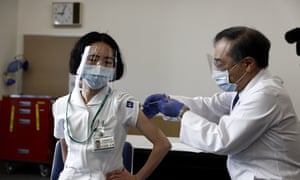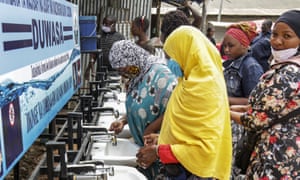
UK homeless deaths rise by more than a third in a year, study finds
Deaths among homeless people have risen by more than a third in a year, according to an analysis by a social justice group that found that almost 1,000 unhoused people had died across the UK in 2020.
The Museum of Homelessness (MoH), a community-driven organisation which runs the Dying Homeless Project, called for action to prevent a repeat of such “terrible loss of life”. Among cases where a cause of death was confirmed, 36% were related to drug and alcohol use and 15% were suicide.
Jess Tuttle, the organisation’s co-founder, said the findings demonstrated how the pandemic had hit a system “already cut to the bone from 10 years of austerity”. The MoH is now calling for a national confidential inquiry into homeless deaths.
A total of 976 deaths were recorded across the four nations in 2020: 693 in England and Wales, 176 in Scotland, and 107 in Northern Ireland. There were 710 deaths registered in the 2019 study, the group said:
Air New Zealand, Singapore Airlines and Emirates are among the airlines to trial a “digital travel pass” intended to ease international travel during the pandemic.
The Travel Pass app was developed by the International Air Transport Association and launched last year, allowing travellers to store and present Covid-19 test results and their vaccination status for verification on check-in.
Air NZ’s chief digital officer Jennifer Sepull described it as “a digital health certificate that can be easily and securely shared with airlines”, Stuff.NZ reports.
Air NZ’s three-week trial will start in April, with both aircrew and customers.Vaccinations began in New Zealand on Friday, with high-risk managed isolation, quarantine and border workers the first on the list.
The programme to vaccinate 12,000 workers gets under way in Wellington today and in Christchurch on Wednesday, and is expected to take a year to complete.
New Zealand confirms one new community case
In more New Zealand news: the Ministry of Health has announced six new cases of Covid-19 in managed isolation, four of which are historical, and one case of community transmission.
The new community case is a household contact of some of the previous cases diagnosed in Auckland this month, the ministry said.
This person, known as Case H, had been previously tested and returned a negative result. They had been isolating at home since last Monday but were transferred to a quarantine facility as a precaution on Friday.
“Due to the steps already taken in identifying, testing and tracing individuals linked to the February cases, as well as Case H isolating at home since Monday and then being in quarantine for the last two days, the public health risk is considered very low,” the ministry said.
Quarantine-free travel resumes from New Zealand to Australia
Quarantine-free travel from New Zealand to Australia has resumed ahead of a downgraded alert level expected in Auckland today. Australia reopened the one-way travel bubble this morning following a cluster of coronavirus cases in Auckland. The prime minister Jacinda Ardern is expected to downgrade the alert level in the city from level 2 to level 1 this afternoon after the outbreak was contained to officials’ satisfaction.
Auckland spent three days last week in a level 3 lockdown after Covid-19 was detected in a family of three in the community. Extra conditions for arrivals in Australia from New Zealand will be effective until 1 March, with anyone who has been in Auckland in the past fortnight (excluding the airport) required to show proof of having returned a negative Covid test result within 72 hours of departure. These rules will be reviewed by the end of the month.
England roadmap out of lockdown revealed
Boris Johnson will unveil the government’s eagerly awaited roadmap out of lockdown for England on Monday. Here’s what the prime minister is expected to tell MPs:
- All pupils in all years can return to the classroom from 8 March.
- Outdoor after-school sports and activities will be allowed to restart.
- In a fortnight, socialising in parks and public spaces with one other person will be allowed.
- On 29 March, restrictions will be eased further to allow larger groups to meet in parks and gardens.
- Outdoor sport facilities will also reopen, as well as organised adult and children’s sport.
Ministers will assess the success of the vaccine rollout, evidence of vaccine efficacy, new variants and infection rates before proceeding to the next step of easing restrictions. More on that here:
Updated
at 8.57pm EST






